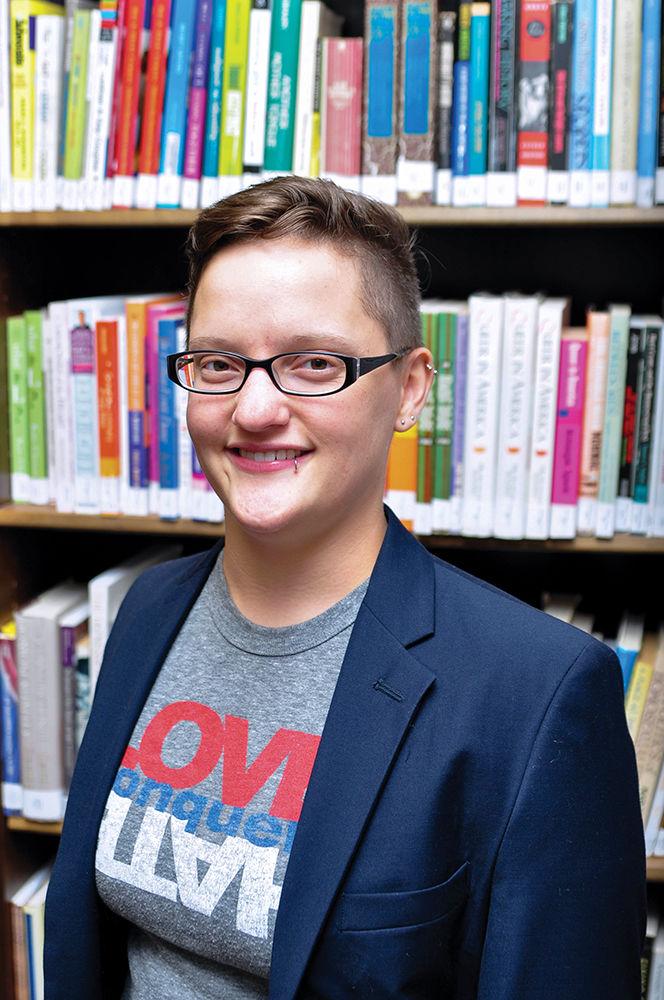The GLBT Center and University Housing are finishing analysis in a research study regarding transgender, genderqueer and gender non-conforming students’ experiences in University Housing, to be released in spring 2018.
The study, “Gender-Inclusive Housing: Benchmarking the Policies and Practices of Peer Institution and Identifying the Needs of Transgender, Genderqueer, and Gender Non-Conforming Students in University Housing,” is headed by co-principal investigators Andy DeRoin, program coordinator at the GLBT Center, and Susan Grant, director of University Housing.
The study includes 15 NC State students’ perspectives and draws from a larger sample of universities throughout the United States. Its primary focus is learning the effects of gender-inclusive housing implementations, or the lack thereof, at other U.S. universities and understanding the experiences of trans students’ experiences in NC State University Housing.
In 2013, members of the UNC Board of Governors voted unanimously to outlaw gender-neutral housing facilities on the UNC System’s 16 campuses. The vote came a year after the decision to implement gender-inclusive housing at UNC-Chapel Hill.
“It came out of our work with the trans support team, which is a collaboration with Student Health, Counseling, Housing and us, and we pull on others as needed such as University Recreation,” DeRoin said. “Basically, our housing issues, because of the ban, have been identified as a problem for a long time. There have been conversations — there really is no great option for finding on-campus housing for students that’s in accordance with their gender identity outside of being private.”
The 2013 UNC housing policy 700.8.1 stated that students must be assigned housing based on their gender assigned at birth and that no two students of opposite gender assignment can live together in UNC System housing unless they are legally married, siblings or parent and child.
Alongside the UNC System policy, the Trump administration redacted Obama administration Title IX guidelines in February that previously protected transgender students from discrimination and unequal facility access on public college campuses. Free from any federal pressures, only the UNC Board of Governors can modify or repeal the housing policy.
At NC State, transgender, genderqueer and gender non-conforming students have historically lived alone in North Hall or in off-campus accommodations, according to Renee Wells, director of the GLBT Center. The center makes efforts to pair trans students together in on-campus housing wherever possible.
“Our trans students are often forced to live by themselves, whether they want to or not,” Wells said. “I think that is one of the complications of the [UNC System housing] policy because one of the big parts of living on a college campus is having a roommate and navigating what that means. For many of our trans students, that is not an option because of the policy.”
DeRoin is optimistic about the results of the study and hopes that they will better transgender, genderqueer and gender non-conforming students’ experiences living on campus.
“We were like, ‘What are other schools doing, and how is our housing policy impacting students?’” DeRoin said. “If other schools are implementing gender-inclusive housing, and we can learn from their challenges and tweak something that might work better on our campus, we can potentially make a case to try it.”
The study’s results will be published and made public during the coming 2018 spring semester. DeRoin is optimistic about the study and is curious about what steps may come after its publication.
“I think the main thing after the study is published will be to help Housing know where some of the gaps in their services are,” DeRoin said. “If we find out that other universities are placing transgender students in dorm-style housing and that it’s fine, we’ll be helping [university administration] understand the impact of being placed in narrow confinements on the students in our study.”
DeRoin hopes that the study’s results will help NC State University administration realize that gender-inclusive housing falls under the university’s non-discrimination policy, and encourages students to think about what they would like to change on NC State’s campus.
“Even if it’s not for an official study, it’s always great to get your voice out there and to talk about your experiences,” DeRoin said. “I would encourage people to do that in any way that they see fit because students really do have a lot of power: we [the GLBT Center] are here to serve you.”
Students can contact University Housing via Evelyn Buck* at 919-515-2440 to talk about their experiences in housing and recommendations. For further information or to contribute to the housing study, contact Andy DeRoin at aederoin@ncsu.edu or view the study’s IRB consent form.
* Editor’s note: this article originally provided outdated contact information.








